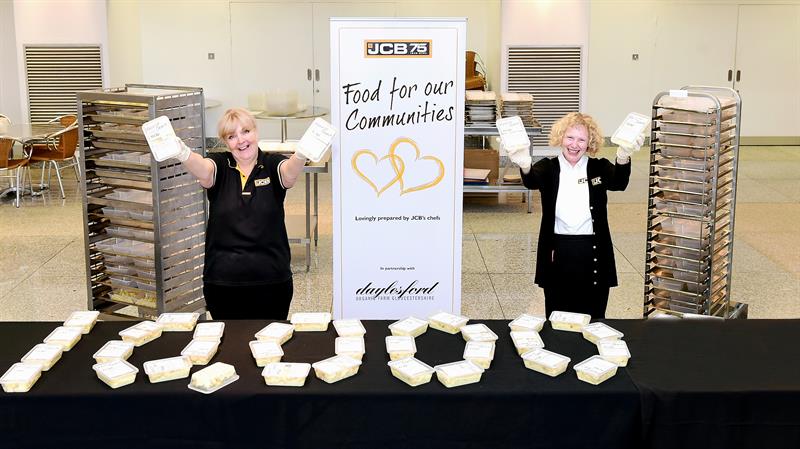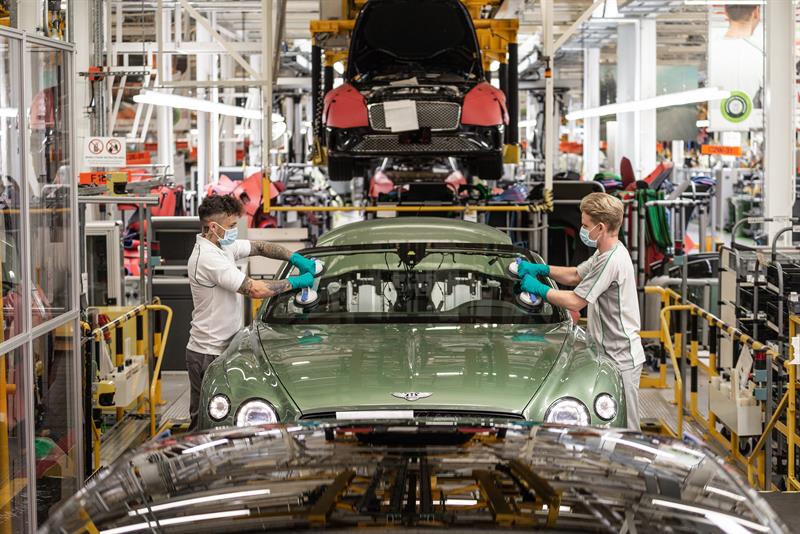1430: MTC robots boost CPAP production
The Coventry-based Manufacturing Technology Centre has loaned two of its MiR200 mobile robots to support the production of life-saving Continuous Positive Airway Pressure (CPAP) devices by Mercedes-AMG High Performance Powertrains.
The MTC, along with the Advanced Manufacturing Research Centre in Sheffield which has also loaned two robots, has supplied the robots to help engineers in the production of 10,000 CPAP devices to help COVID-19 patients in intensive care.
CPAP devices are in short supply in UK hospitals, so engineers at University College London (UCL) and Mercedes-AMG HPP worked round-the-clock to reverse engineer a device that could be manufactured rapidly by the thousands. Designs of the new breathing aid developed by engineers, working with clinicians, have been made freely available to support the global response to COVID-19.
The MTC and AMRC-supplied MiR200 is a safe, mobile robot that can automate internal transportation and logistics. The robot optimises workflows, freeing staff resources to keep team members safe during the current COVID-19 challenges and aid productivity. The robots have been working continuously by transporting parts between locations to facilitate social distancing and minimise colleague contact.
Richard Kasler, automation team leader at Mercedes-AMG HPP said, “I would like to thank the MTC for loaning the MiR200s. They’ve been invaluable in allowing us to make 10,000 CPAP devices in 10 days with the least amount of people on site at Brixworth.”
---------------------------------------------------------------------------------
1415: JCB serves 10,000th meal to local community
JCB’s ‘Food for our Communities’ initiative today served up a major milestone as the 10,000th meal was despatched from the company’s kitchens for those in need in Staffordshire.

Since the launch of the scheme – the idea of Carole Bamford, wife of JCB Chairman Lord Bamford – catering staff at the World HQ in Rocester have been busily preparing cottage pies, macaroni cheese and bolognese dishes for disadvantaged families and individuals across the region during the Coronavirus crisis.
Today the 10,000th meal was cooked and despatched from the JCB kitchen – just a month after the initiative started. So far, the team has used around two tonnes of potatoes, more than one tonne of minced beef and almost half a tonne of both pasta and onions to prepare the dishes.
In India – where JCB has factories in Delhi, Pune and Jaipur – the scale of the initiative is even greater and staff there have now prepared a staggering 100,000 meals.
---------------------------------------------------------------------------------
1400: Campaign launched to ‘Get Britain Trading Again’
A new campaign, launched by insurtech Nimbla, warns of an “insolvency domino effect” and calls for additional government support for Britain’s six million Small and Medium-Sized Enterprises (SMEs). The goal of the campaign is to give SMEs the confidence they need to resume trading when the lockdown ends.
After weeks of hardly any trade, Britain’s businesses will be less resilient than before and they will have less cash to withstand a loss. Most businesses won’t be able to pay upfront for the goods they need to reopen and get back on their feet so they will want to pay later using trade credit. Trade credit is when a customer pays for a product or service within a specified period rather than upfront.
Normally, businesses have access to trade credit insurance to protect the trade credit they provide. If a customer doesn’t pay and becomes insolvent, the insurance company will pay out. The crisis has increased insolvency risk significantly, and insurance companies have had to cap the amount of trade credit they can insure.
---------------------------------------------------------------------------------
1330: SME manufacturers turning to technology during Covid-19 crisis
SME manufacturers supported by Made Smarter are using emerging technologies to navigate the impact on business from the coronavirus pandemic.
Businesses signed up to the North West pilot to support the Industry 4.0 revolution have adapted in a variety of ways, including switching production to make medical scrubs, ventilator parts and PPE to help the front-line fight against the disease.
Others have harnessed new capabilities to ramp up production to meet increasing demand and continue operating while staff self-isolate to prevent the spread of COVID-19.
While Made Smarter has shut its offices to do its bit to combat COVID-19, its team of expert business and technology advisers have continued to offer support and advice virtually.
Alain Dilworth, Made Smarter Programme Manager, said: “The COVID-19 outbreak has widespread repercussions for the economy, which will have most likely led to uncertainty in terms of the way businesses operate.
“It has been impressive how manufacturers have reacted and adapted to the different circumstances they find their businesses facing. Made Smarter has been able to continue offering help and advice over Skype and telephone."
---------------------------------------------------------------------------------
1230: Bentley Motors outlines plan to restart production
Bentley Motors is to introduce a set of around 250 comprehensive and wide-ranging new hygiene and social distancing measures under an employee programme called ‘Come Back Stronger’ in order to implement a safe, phased return to production at the company’s headquarters in Crewe from 11 May. The plan marks the biggest change to daily working life in the company’s 100 year history.

The measures are built around seven key areas – prior to leaving work, travel, entry, preparing for work, work stations, breaks, and exiting the site – and are designed to protect staff at the factory, which employs over 4,000 people and where every Bentley is hand-built.
The key process changes impact all areas, and include a redesign of the manufacturing facility itself to allow a two-metre distance between work colleagues, and one-way movement paths and traffic flows. Facemasks will now be compulsory in all factory and office areas, while Bentley will maintain a work from home policy for those who are able to.








